
|
Masada: Live In Sevilla (Tzadik, 2000), 3/10 Masada: Live At Tonic (Tzadik, 2001), 3/10 Masada: First Live 1993 (Tzadik, 2002), 3/10 Xu Feng (Tzadik, 2000), 6/10 Cartoon S/M (Tzadik, 2000), 6.5/10 Filmworks IX (Tzadik, 2000), 4/10 Madness, Love & Mysticism (Tzadik, 2001), 4/10 The Gift (Tzadik, 2001), 6/10 Filmworks X (Tzadik, 2001), 5.5/10 Songs from the Hermetic Theater (Tzadik, 2001), 5/10 Hockey (Tzadik, 2002), 6.5/10 Painkiller: Talisman (Tzadik, 2002), 3/10 Naked City Live 1 (Tzadik, 2002), 3/10 I.A.O. (Tzadik, 2002), 6.5/10 Hemophiliac (Tzadik, 2002), 4/10 Cobra (Tzadik, 2002), 7/10 Filmworks XI (Tzadik, 2002), 4/10 Filmworks XII (Tzadik, 2002), 3/10 Filmworks XIII (Tzadik, 2002), 6/10 Painkiller Live in Nagoya (Tzadik, 2002), 3/10 Masada Guitars (Tzadik, 2003), 5.5/10 Voices in the Wilderness (Tzadik, 2003), 6/10 Chimeras (Tzadik, 2003), 6.5/10 The Unknown Masada (Tzadik, 2003), 3/10 Filmworks XIV (Tzadik, 2003), 4/10 Magick (Tzadik, 2005), 6/10 Moonchild (2006), 5/10 Astronome (2006), 6/10 Six Litanies For Heliogabalus (2007), 6/10 Cartoon S/M (Tzadik, 2000) revises some of his neoclassical compositions: the String Quartets, most of Angelus Novus and Music for Children. Filmworks IX (Tzadik, 2000) contains Trembling Before G-d, his first feature-length soundtrack, scored only for clarinet (Chris Speed), organ (Saft) and percussion (Baptista). Filmworks X (Tzadik, 2001), containing In the Mirror of Maya Deren, is one of the most romantic, with tender cello and piano counterpoint and exotic overtones (Zorn on piano, Jamie Saft, Cyro Baptista, Erik Friedlander). Filmworks XI (Tzadik, 2002) contains one of his least experimental works, Secret Lives for string trio (Cohen, Feldman, Friedlander), which is basically kletzmer new-age music; Filmworks XII (Tzadik, 2002) ranks as one of the least organic and least inspired Homecoming for vocalist Jennifer Charles, violinist Mark Feldman, pianist Jamie Saft, and Zorn himself on organ). Filmworks XIII (june 2002 - Tzadik, 2002) is surprisingly one of his best, the score for Invitation to a Suicide(Ribot, Freidlander, Wollesen, Dunn and Tin Hat Trio's accordionist Rob Burger). Madness, Love & Mysticism (Tzadik, 2001) contain chamber music, in particular Le Momo (1999) for violin and piano, a "ritual of exorcism and possession", and Amour Fou(1999) for violin, cello and piano. By his standards, The Gift (Tzadik, 2001), ostensibly the follow-up to Taboo & Exile, is almost new-age music: calm, soothing, relaxing adagios for a thirteen-unit ensemble. Songs from the Hermetic Theater(Tzadik, 2001) is a collection of radical computer-based experiments, mostly trivial. Zorn introduced new elements in his music via another "music romance" album, I.A.O. (Tzadik, 2002), which has nothing in common with the previous ones: it is, basically, an exoteric mass a` la Aphrodite's Child's 666, devoted to visions such as Lucifer Rising (an angelic a-cappella choir), Leviathan (a burst of distorted heavy-metal fury) and Sex Magick (thirteen minutes of tribal drums), indulging in lugubrious Sacred Rites of the Left Hand Path (actually, one of his most effective electroacoustic compositions). Clavicle of Solomon, nine minutes of hissing alien radio signals, is one of Zorn's most successful excursions into musique concrete. Painkiller's Talisman (Tzadik, 2002) documents a 1994 concert in Nagoya. Naked City's Live 1(Tzadik, 2002) documents a 1989 concert. Hemophiliac(Tzadik, 2002) is a collaboration with Mike Patton and Ikue Mori. Resurrecting one of the best ideas of his career (the solo guitar version of Mochin on Bar Kokhba), Masada Guitars(Tzadik, 2003) presents 22 Masada tunes rearranged for guitars only (Bill Frisell, Tim Sparks, Marc Ribot). The double-disc Voices in the Wilderness(Tzadik, 2003) contains yet another set of (24) Masada tunes arranged for chamber ensembles (trios and quartets). Chimeras (Tzadik, 2003) documents another chamber work: Chimeras (2001) for operatic singer and twelve instruments. Zorn goes for sophisticated psychological atmospheres crafted via loose and abstract soundscapes. The highlight is a magic interplay of percussion and voice, 7. The operatic voice is not Zorn's most natural instrument and the effect is embedding its forceful wordless laments and declamations into brief instrumental chaos is mixed. The voice-less suspense of 9comes as a welcome relief. The Unknown Masada(Tzadik, 2003) collects a dozen unreleased Masada tracks but not performed by Masada. Zorn also composed a new string quartet, Necronomicon(2003). Filmworks XIV (april 2003 - Tzadik, 2003) contains Hiding and Seeking for classical guitar (Marc Ribot), vibraphone (Kenny Wollesen), Brazilian percussion (Cyro Baptista), acoustic bass (Trevor Dunn) and voice (Ganda Suthivarakom). Filmworks XV (october 2004 - Tzadik, 2005) contains the soundtrack for Protocols of Zion (Zorn himself on piano, percussionist Cyro Baptista and bassist and oud player Shanir Ezra Blumenkranz). Filmworks XVI (2005) contains Workingman's Death (percussionist Cyro Baptista, Ikue Mori on electronics, John Zorn on gamelan and organ, Jamie Saft on keyboards and guitars, Shanir Ezra Blumenkranz on bass). Filmworks XVII (2005) contains Notes on Marie Menken (Zorn on alto, Kenny Wollesen on percussion, Shanir Ezra Blumenkranz on bass, Jon Madof on guitar). Filmworks XVIII (2005) contains the soundtrack for The Treatment (Mark Feldman on violin, Kenny Wollesen on vibraphone, Rob Burger on accordion, Shanir Ezra Blumenkranz on bass, Marc Ribot on guitar). Mostly his soundtracks were childish, amateurish and often tedious. Filmworks XIX (2005) contains the soundtrack for Rainhorse(Erik Friedlander on cello, Greg Cohen on bass, Rob Burger on piano). The biggest problem with John Zorn is not that he is a mediocre musician (on the contrary) but that he lived in an age in which it is very easy and cheap to release music. Thus the average quality of his recordings is very low. That does not detract from the fact that some of his music was, indeed, worth releasing. Masada String Trio(Tzadik, 2004) documents a live performance. Naninani (Tzadik, 1995) and Naninani II (Tzadik, 2004) are collaborations with Yamataka Eye. Since printing CDs is cheap, Zorn released several volumes of 50th Birthday Celebrationin 2005, each a collaboration with some of his friends. Magick (Tzadik, 2005) is the real gem among so much filler. It contains the five-movement suite Necronomicon for strings and 2001 Sortilegefor two bass clarinets, chamber music that highlights Zorn's talent for turning classical harmony upside down and shows how he has wasted most of his career in pointless collaborations. Naked City's seven studio albums are collected on the five-CD box-set The Complete Studio Recordings(Tzadik, 2005). Rituals(Tzadik, 2005), unrelated to Painkiller's namesake album, is an opera for voice and ten instruments composed for the Bayreuth Opera Festival in 1988.
John Zorn's 50th Birthday Celebration Vol. 12(Tzadik, 2005) is a live album credited to Painkiller, but does not include Mick Harris (replaced by Hamid Drake) and features vocalist Mike Patton. At the Mountain of Madness(2006) is a live album. Mysterium (2006) compiled three major chamber compositions: Orphe for viola, harp, keyboard, percussion, electronics, flute; Frammenti del Sappho for voice, soprano, alto, soprano; Walpurgisnachtfor violin, viola and cello. The Stone - Issue One(2006) is a collaboration with trumpeter Dave Douglas, also featuring Mike Patton (voice), Rob Burger (keyboards), Bill Laswell (bass) and Ben Perowsky (percussion). Moonchild(2006) is a new experiment combining composition and improvisation in a rock format (the trio of vocalist Mike Patton, bassist Trevor Dunn and drummer Joey Baron) and dedicated to three controversial characters: magician Aleister Crowley, poet Antonin Artaud and musician Edgard Varese. The result is often pretentious and uninspired, despite Patton's vocal acrobatics and the frightening rhythm machine. Astronome (2006) was meant as the continuation of Moonchild, as it featured the same line-up, except that this time the album was a rock opera in three acts. The format (three lengthy suites) seem to better suit the musical personae of the trio who, thanks or despite Zorn's conduction, unleash an inferno of deviant hardcore and heavy-metal. Six Litanies For Heliogabalus (2007) was the third installment of music for the trio of vocalist Mike Patton, bassist Trevor Dunn and drummer Joey Baron (plus Ikue Mori and keyboardist Jamie Saft).
Dreamers (Tzadik, 2008) is an eclectic, post-modern multi-stylistic romp for the quintet of Jamie Saft on keyboards, Kenny Wollesen on vibraphone, Marc Ribot on guitar, bassist Trevor Dunn and drummer Joey Baron. The project was continued on O'o (february 2009), featuring Cyro Baptista and Joey Baron (drums), Trevor Dunn (bass), Marc Ribot (guitar), Jamie Saft (piano, organ) and Kenny Wollesen (vibraphone). John Zorn's O'o (for Tzadik) is the follow up of Dreamers: again a work of eclectic and multi-stylistic world music on which John leads a group composed by Cyro Baptista and Joey Baron (drums), Trevor Dunn (bass), Marc Ribot (guitar), Jamie Saft (piano, organ) and Kenny Wollesen (vibraphone). Recorded February 2009. Lucifer(Tzadik, 2008), performed by Bar Kokhba twelve years after their recording debut, was his best chamber project in a while, thanks mainly to the ensemble (Mark Feldman on violin, Erik Friedlander on cello, Greg Cohen on bass, Marc Ribot on guitar, Joey Baron on drums). A live 2008 performance of Lou Reed, Laurie Anderson and John Zorn was documented on The Stone Issue 3(Tzadik, 2008). Moonchild featured John Zorn (alto sax), Joey Baron (drums), Trevor Dunn (bass), Mike Patton (voice) and Marc Ribot (guitar) on The Crucible (2008). Masada, the old John Zorn's project, back on stage with Stolas: The Book of Angels, Vol. 12 (for Tzadik), that follows Zaebos (vol. 11), and on which Zorn plays alto sax with a quintet formed by Joey Baron (drums), Uri Caine (piano), Greg Cohen (bass), Dave Douglas (trumpet) and Joe Lovano (tenor sax). Recorded february 2009.Still by Tzadik, for John Zorn is now out his umpteenth Book of Angels' saga chapter (the 13th). Mycale, on which, needless to say, John vents his eclecticism, this time conducting a «solo cappella» setting: 4 well known voices, i.e. Basya Schecter, Ayelet Rose Gottlieb, Malika Zarra and Sofia Rei Koutsovitis, who interpret 11 Zorn's songs with lyrics in Hebrew, Yiddish, Ladino, French and Arabic drawn from Rumi, Fernando Pessoa, The Hebrew Bible, etc. Recorded in october 2009, this is the first of 12 CDs promised by John for 2010: one for each month...From Tzadik is out Haborym, i. e. chapter 16 of Book of Angels' saga by John Zorn, that features the first studio recording from Masada String Trio in five years. Recorded in march 2010, Haborym gathers 11 tracks for 46 minutes. The Trio conducted by Zorn, let's remember, is composed by Greg Cohen on bass, Mark Feldman on violin and Erik Friedlander on cello. Tzadik releases John Zorn's Abraxas, vol. 19 in the Book Of Angels series, recorded with Shanir Ezra Blumenkranz on gimbri, with guitarists Eyal Maoz and Aram Bajakian (who recently played in Lou Reed's new band) and drummer Kenny Grohowski. 10 new pieces, quite brief.Tap is the Vol. 20 of John Zorn's Book Of Angels saga (Tzadik) on which the performer, this time, is Pat Metheny, who plays several kind of guitars, plus bass, keyboards, orchestrionics, electronics, bandone�n, percussion and flugelhorn, with the collaboration of drummer Antonio Sanchez and Willow Metheny on voice. Six lenghty pieces.Eyvind Kang presents Alastor (Tzadik, 2014), the volume 21 of John Zorn's saga Book of Angels. For Kang, Zorn composed 10 new tunes, performed with orchestral arrangements, playing electric bass, guitars, zither, synthesizer, oud, percussion, piano, sitar, viola and violin. A large ensemble accompanied him.John Zorn keeps to produce his Book of Angels serie. Adramelech is the vol. 22 (Tzadik, 2014), performed by Zion80 (the brainchild of guitarist Jon Madof), who led a project that mixes the Afro-pop music � la Fela Kuti with the Jewish tradition. The eight tracks feature a 11-piece ensemble, with Klezmatics members Frank London (trumpet) and Matt Darriau: (alto sax, kaval and clarinet), Shanir Ezra Blumenkranz (bass), Yoshie Fruchter (guitar), Jessica Lurie, who played in Birdsongs Of The Mesozoic's Pictures of Motion (baritone sax and flute), Brian Marsella (keyboards), Greg Wall (tenor sax), Yuval Lion (drums), Zach Mayer (baritone sax), plus percussionists Mauro Refosco and Marlon Sobol. Recorded in may 2014.Aguares, the 23th volume of Book of Angel's serie, performed by Masada Octeto, an israelian ensemble led by the Cuban Roberto Rodriguez.Amon (Tzadik, 2015) is the Book of Angels Volume 24, created along with Klezmerson.Gomory (Tzadik, 2015) features the 25th Book of Angels, performing Masada compositions by John Zorn. Recorded at a date in 2015, the album collects eleven pieces performed by Mycale, i.e. the cappella vocal quartet of Ayelet Rose Gottlieb, Sofia Rei, Sara Serpa and Malika Zarra.
From Tzadik, Femina is a new John Zorn's work, that composed music and conducts an ensemble (as always, very eclectic) formed by Jennifer Choi (violin), Sylvie Courvoisier (piano), Carol Emanuel (harp), Okkyung Lee (cello), Ikue Mori (electronics), Shayna Dunkelman (percussion) and special guest Laurie Anderson for the opening narration. Recorded in december 2008. The monthly John Zorn album... this is the turn for In Search Of The Miraculous, as always from Tzadik, recorded in september and october 2009 by John, here as arranger for the Alhambra Trio, i.e Rob Burger on piano, Greg Cohen on acoustic bass, Ben Perowsky on drums, accompanied by guests Kelly Wollesen (vibraphone), Carol Emanuel on harp and Shanir Ezra Blumenkranz (electric bass).
Tzadik releases Goddess: Music For The Ancient Of Days, the monthly John Zorn's album, recorded in december 2009, on which John is the composer and arranger. Music (7 tracks for 48 minutes) was performed by Rob Burger (piano), Trevor Dunn (bass), Carol Emanuel (harp), Ben Perowsky (drums), Kenny Wollesen (vibes) and Mark Ribot (guitar). Also from Tzadik, the new monthly John Zorn album: Interzone, his tribute to William S. Burroughs, largely improvised; recorded in June and July 2010, this CD features John on saxophone, in a lineup with Mark Ribot (guitars, banjo, sinatir and cumbus), Cyro Baptista (percussion), Ikue Mori (electronics), Kenny Wollesen (drums, vibes, chimes, tympani, wollesonics, percussion), John Medeski (keyboards) and Trevor Dunn (basses). Interzone is a 3-mouvement suite, for 50 minutes. Recorded in may 2011, At The Gates Of Paradise is the new John Zorn installation, released, as always, by Tzadik, which features the notable lineup of John Medeski (piano and organ), Kenny Wollesen (vibes), Trevor Dunn (bass), and Joey Baron (drums). The 8 pieces (quite 50 minutes) were inspired by William Blake's Works. John Zorn presents Dictée/Liber Novus (released by Tzadik), that collects two new file card compositions, one (Dictée, 23 minutes) )dedicated to Korean-American writer Theresa Hak-Kyunch Cha, and the other (Liber Novus, 16 minutes) inspired by Carl Jung's Red Book. The music features a lot of sound effects, samples and electronics. Spaced out by several narrations, this album was recorded in december 2009. The lineup sees Sylvie Courvoisier and Stephen Gosling on piano, Okkyung Lee on cello, John Medeski on organ, Ned Rothenberg on shakuhachi, bass flute and clarinet, David Slusser on sound effects, Kenny Wollesen on vibes and percussion, and John Zorn on Foley effects and samples. Nova Express is a Tzadik CD credited to John Zorn, that leads a quartet with John Medeski (piano), Kenny Wollesen (vibes), Trevor Dunn (bass) and Joey Baron (drums) to perform 10 new (almost brief) Zorn's pieces. Enigmata (by Tzadik) collects 12 new brief John Zorn's compositions, recorded in march 2010 and performed by Marc Ribot (electric guitar) and Trevor Dun (electric 5-string bass), who alternate between rock sound and large improvisations.
Nosferatu is the new John Zorn album, released, as always, by Tzadik. Recorded in june 2011, this studio performance features Rob Burger on piano and organ, Bill Laswell on bass, Kevin Norton on vibraphone, drums, orchestral bells and Tibetan prayer bowls, and John Zorn on piano, alto sax, fender rhodes and electronics. Zorn composed 16 pieces, mostly brief, for a stage production of Bram Stoker's classic vampire tale, released on 100th anniversary of Stoker's death. Templars - In Sacred Blood, is the new Tzadik album by John Zorn. As always, his lineups gathers notable performers. This time, after having composed words and music (eight new pieces) over a year, he recorded it between october 2011 and january 2012, accompanying as conductor Mike Patton (voice), John Medeski (organ), Trevor Dunn (bass) and Joey Baron (drums). This is his sixth CD in the Moonchild legacy. By Zorn, Tzadik also released The Hermetic Organ (recorded december 2011), the first volume documenting Zorn's solo organ improvisations, coming from a new series of solo organ concerts in churches around the world. John Zorn's Rimbaud (released by Tzadik) is an eclectic suite inspired by revolutionary French writer Arthur Rimbaud, a chamber suite in four parts. As always, the lienup is very notable: Trevor Dunn (bass), Brad Lubman (conductor), Ikue Mori (laptop, electronics), Kenny Wollesen (drums), Mathieu Amalric (voice), Steve Beck (piano), Erik Carlson (violin), Stephen Gosling (piano), Chris Gross (cello), Al Lipowski (vibraphone), Rane Moore (clarinet), Tara O'Connor (flute), Elizabeth Weisser (viola). The leader, this time, is on samples, electronics, alto sax, piano, organ, guitar, drums and foley effects). Recorded on march 2012. John Zorn's Music And Its Double (Tzadik) collects three works from his cello concerto, a showpiece for cellist Fred Sherry, and three chamber compositions: A Rebours (11 minutes), conducted by Bradley Luman with a 10-musicians ensemble, recorded on december 2011; Ceremonial Magic, a duo performance featuring violinist Dave Fulmer and drummer Kenny Wollesen, recorded in two sessions in september 2011 (14 minutes) and may 2012 (5:30 minutes); La Machine de l'�tre, a three-part composition (12 minutes) performed by soprano Anu Komsi with Lahti Symphony Orchestra. The Concealed, latest Tzadik album by John Zorn, features another notable lineup. The leader composed 14 new pieces performed by Joey Baron (drums), Trevor Dunn (bass), Mark Feldman (violin), Erik Friedlander (cello), John Medeski (piano) and Kenny Wollesen (vibes). Arranged mostly in solos and trios, this recording is largely improvised. Recorded in may 2012.
A Vision in Blakelight (Tzadik) is the more recent John Zorn release, recorded in december 2011. Inspired by William Blake's works, the album features 10 pieces performed by John Medeski (piano, organ), Kenny Wollesen (vibes, bells), Carol Emanuel (harp), Trevor Dunn (bass), Joey Baron (drums), Cyro Baptista (percussion) and Jack Huston (reading). The sound alternates jazz, classical and minimalism. Still for Zorn, City Of Slaughter/Schmatta/Beyond The Infinite (Tzadik) documents his first FilmWorks CD in three years, featuring musics for solo piano. Zorn composed soundtracks performed by Israeli pianist Omri Mor, plus Rob Burger's solo piano of Zorn's Beyond The Infinite (from The Goddess) and four Zorn improvisations for Marc Levin's documentary Schmatta. Recorded between december 2009 and may 2012. Tzadik releases Lemma, the... monthly John Zorn recording, that features, this time, two new works for solo violin: the Bach-based 14-minute Passagen and the four part 19-minute Ceremonial Magic; and furthermore Apophthegms, a 12 part-suite for two violins. With Zorn also collaborated three virtuoso violinists: Pauline Kim, David Fulmer and Chris Otto.
John Zorn's The Mysteries (Tzadik) documents the follow-up of In Search Of The Miraculous (december 2009), that continued with the december 2011 Gnostic Preludes, performed by the trio of guitarist Bill Frisell, harpist Carol Emanuel and vibraphonist Kenny Wollesen. As the previous, The Mysteries features minimalistic melodies that alternate with many improvisations, mostly by Bill Frisell. Recorded in december 2012. Dreamachines (Tzadik, 2013) features nine John Zorn's compositions performed with Nova Express, the lineup comprising of John Medeski (piano), Kenny Wollesen (vibes), Trevor Dunn (bass) and Joey Baron (drums) that already recorded in 2011 their self-titled with the leader. Another chamber album, as always eclecticly inspired. Recorded in april 2013. Under the title @, Tzadik presents seven new John Zorn's compositions written and performed on alto sax paired with Thurston Moore on guitars. Quite totally improvised, this album was recorded in february 2013. Howe presents The Road To Jajouka, featuring an unusual and very notable ensemble with Ornette Coleman and John Zorn (alto saxes), Marc Ribot (banjo), Lee Ranaldo (guitar), John Medeski (Hammond organ), Bill Laswell and Chris Wood (basses), Billy Martin and Mickey Hart (drums) along with the Master Musicians of Jajouka, created by Brian Jones in 1971 and now led by Bachir Attar (here on flutes and ghaita). This �trance music album� is a benefit for The Jajouka Foundation, which aims to support one particular strand of Moroccan trance music. 9 pieces.
On The Torment Of Saints, The Casting Of Spells And The Evocation Of Spirits (Tzadik, 2013) is a John Zorn's installment of chamber pieces: All Hallows' Eve (15 minutes written in 2004) are three movements for string trio; The Tempest (11 minutes) as a musical reading of Shakespeare's last play; Anthony (9 minutes, inspired by St. Anthony's tormentors) is a concerto was performed by the Fifth House ensemble (2 cellos, 2 violas, 2 flutes, 2 violins, 2 clarinets, 2 horns, bassoon, piano, bass and drums) with Zorn on mini-piano. Recorded in july 2013. And Zorn comes back with Painkiller, his project founded with Bill Laswell in 1991: The Prophecy: Live In Europe 2004-2005 documents their first album in ten years, Zorn on alto sax, Laswell on bass and Yoshida Tatsuya on drums. The trio pulled together several concerts in a hour long suite. News from John Zorn. Not to be confused with his A Vision In Blakelight (december 2011), In Lambeth: Visions From The Walled Garden Of William Blake (Tzadik, 2013) is the third CD by his ensemble The Gnostic Trio (Carol Emanuel on harp, Bill Frisell on guitar and Kenny Wollesen on vibraphone and bells), this time a quartet with guest Ikue Mori on electronics. Nine compositions recorded in april 2013. Credited to The Sapphites, Shir Hashirim (Tzadik, 2013) is another John Zorn album featuring the cappella quintet of Lisa Bielawa, Martha Cluver, Abigail Fischer, Kathryn Mulvehill and Kirsten Sollek. The album features eight pieces inspired by mediaeval traditions, Renaissance madrigals, 20th century vocal techniques and minimalism, evocating King Solomon's Song of Songs. Recorded in september 2010. Volume II: Great Duo Live (Chadula, 2013) features Eugene Chadbourne on all guitars & effects and John Zorn on alto & soprano sax, B-flat clarinet & game calls. These are previously unreleased archival recordings from 1977 to 1980, both solos and duos. More than an hour.
John Zorn's Psychomagia (Tzadik, 2014) was performed by the Moroccan Abraxas quartet (who arranged the Book of Angels series). Here they perform a complex new suite of music written expressly for them by Zorn. Recorded in december 2013 and mixed by Bill Laswell. Still by Zorn, The Alchemist (again Tzadik) features his sixth quartet (Jay Campbell on cello, David Fulmer on viola, along with Jesse Mills and Pauline Kim on violin), plus the trio vocals of Jane Sheldon, Kirsten Sollek and Mellissa Hughes. This album contains two long pieces, the title-track and Earthspirit, premiered in july 2013 and then studio recorded in october 2013 for the CD release. Still by Tzadik, Fragmentations, Prayers And Interjections is the first release of Zorn's orchestral work in over 15 years, four of Zorn's compositions for large ensembles, including Orchestra Variations (1996) commissioned by the New York Philharmonic, and Suppots et Suppliciations (2012) commissioned by the BBC Symphony and inspired by the late writings of Antonin Artaud. Also included is the Zorn's violin concerto Contes de Fees, performed by Chris Otto, and the string orchestra version of Kol Nidre. Orchestra was conducted by David Fulmer and recorded live at Miller Theatre for Zorn's 60th birthday concert. Stephen Gosling (piano), Greg Cohen (bass) and Tyshawn Sorey (drums) performed in february 2014 In The Hall of Mirrors, the new album composed by John Zorn for Tzadik. The six new tracks sport a mixing of classical and jazz. Recorded in december 2013, Sonic Rivers (Tzadik, 2014) features George Lewis on trombone and electronics, John Zorn on alto sax and Wadada Leo Smith on trumpet. The trio inaugures the new Tzadik serie Spectrum, and composed nine new pieces, seven collectively and two by Leo Smith, mostly improvised but plenty of silence and refined atmospheres. Zorn comes back with Nova Express, the project with John Medeski, Trevor Dunn, Kenny Wollesen and Joey Baron; they recorded On Leaves Of Grass (Tzadik, 2014), on which Ikue Mori joined the lineup. This is the sixth album, inspired by and dedicated to American poet Walt Whitman. The sound is hypnotic and minimalistic, also quite improvised. Gnostic Trio, the lineup produced by John Zorn and comprising of Bill Frisell (guitar), Kenny Wollesen (vibraphone and bells) and Carol Emanuel (harp), after having debuted with The Gnostic Preludes (december 2011), followed by The Mysteries (december 2012) and the pure jazz In Lambeth, (april 2013), comes back with The Testament Of Solomon (Tzadik, 2014), an album that, as the previous, features a melodic and spiritual approach, that mixes classical, jazz and folk music. Recorded in march 2014. More and more prolific, John Zorn keeps to produce new albums. Tzadik released just now: 1) The Dream Membrane, a collaborative project trio recorded in june 2014, with the leader (shofar and alto sax), Bill Laswell (bass and drones) and writer/illustrator David Chaim Smith, who reads selections from his book The Awakening Ground; 2) Valentine's Day, new trio version of 2011's Enigmata duo version, performed this time by Trevor Dunn (electric 5-string bass), Marc Ribot (electric guitar) and Tyshawn Sorey (drums); Transmigration Of The Magus (Tzadik, 2014) This newest release by John Zorn's Gnostic Trio expands the group into a sextet, featuring Bill Frisell (guitar), John Medeski (organ), Bridget Kibbey and Carol Emanuel (harps), Al Lipowski and Kenny Wollesen (vibes, bells). Nine pieces. The Last Judgement (Tzadik, 2014) is the final John Zorn's project Moonchild album, performed with Mike Patton (vocals), Trevor Dunn (bass), Joey Baron (drums) and John Medeski (organ). The suite Zorn composed features a lyrical approach. News by always more prolific John Zorn. The Hermetic Organ Vol. 3 (Tzadik, 2015) documents his third solo organ album, live recorded in november 2013: three lenghty pieces featuring loud and hypnotic sonorities. And Olympiad The Early Game Pieces (Tzadik, 2015) documents the new guitar quartet Dither's album performing two versions of four Zorn's pieces he composed in the late '70s and early '80s, as yearly retrospectives of his game pieces at various Downtown venues. He called these events his Olympiads. In this second release, Dither are: Gyan Riley (electric and acoustic guitar, banjo), Taylor Levine (electric and acoustic guitar), Joshua Lopes (electric and acoustic guitar, bajo sexto, zhong ruan) and James Moore (electric and acoustic guitar, banjo, mandolin). Among the pieces, the first recording of Zorn's Fencing and Curling (especially the second electric 20-minute version).Simulacrum (december 2014), composed by John Zorn, inaugurated the organ trio of John Medeski, Cleric's Matt Hollenberg and Kenny Grohowski. Simulacrum, featuring Trevor Dunn (bass), John Medeski (organ), Marc Ribot (guitar), Abraxas' Kenny Grohowski (drums) and Cleric's Matt Hollenberg (guitar), returned with The True Discoveries Of Witches And Demons (Tzadik, 2015). John Zorn's Inferno (Tzadik, 2015) features John Medeski on organ, Matt Hollenberg on guitar and Kenny Grohowski on drums. The third CD from Zorn's new instrumental ensemble is inspired by the work and thought of Swedish playwright, poet, painter, philosopher, novelist, alchemist and occultist August Strindberg. The seven pieces, among which the 21-minute namesake suite, feature metal, jazz, minimalism, atonality, ambient and more. Recorded in may and june 2015.
Trio 99 > 00 (august 1999) was a trio With bassist Larry Grenadier and drummer Bill Stewart.
An artistic rebirth of sorts took place in the new millennium. The Group's live double-CD Speaking of Now (2001) featured Mays, Rodby, Mexican drummer Antonio Sanchez, trumpeter Cuong Vu and Cameroonian bassist Richard Bona (Gathering Sky, Proof). Adding Swiss harmonica player Gregoire Maret to the line-up, the Group's 68-minute four-movement suite The Way Up(2004) was Metheny's and Mays' most ambitious and eclectic composition ever, running the gamut from minimalist repetition to romantic melody.
One Quiet Night (january 2003) was a solo acoustic guitar album.Nonesuch released Pat Metheny's What's It All About, his new «solo» album, on which he plays guitars: baritone, 42-string Picasso, 6-string, and nylon-string. However, for the first time, this album presents only rock and jazz covers. Some titles include: The Sound of Silence; Pipeline; Garota de Ipanema; Rainy Days and Mondays; 'Round Midnight; And I Love Her, etc. It was recorded in february 2011. on december 2005 by Pat Metheny's guitars (that composed half of the pieces), for recording of Quartet.
Nonesuch released Orchestrion, that marks the switching to music-software for Pat Metheny. His new project, recorded in october 2009, features 5 tracks digitally composed, with Pat as «solo» performer, on a true guitar and with his orchestrionics, i.e., digital simulation of pianos, marimba, vibraphone, orchestra bells, basses, guitarbots, percussion, cymbals and drums, blown bottles, custom-fabricated acoustic mechanical instruments, keyboards. Metheny gave recently journalists a sneak preview of the instrument in Manhattan's Legacy Studios, and will be taking these pre-programmed arrangements on the road: an European tour in February and March will be followed by a North American tour in April and May.
Pat Metheny's Unity Band (from Nonesuch) marks the guitarist's return with a quartet, the Unity Band. For the first time in more than 30 years, Metheny features a tenor sax, after his debuting ECM recordings from 1980/81. The lineup: Pat Metheny (electric and acoustic guitars, guitar synth, orchestrionics); Chris Potter (tenor and soprano saxes, bass clarinet); Ben Williams (acoustic bass); Antonio Sanchez (drums). 9 new pieces recorded on february 2012. Pat Metheny Unity Group presents Kin (Nonesuch, 2014), their second album after the february 2012 debuting self-titled. Featuring the new entries of saxophonist/multi-instrumentist Chris Potter and Italian vocalist and pianist Giulio Carmassi (who also plays trumpet, trombone, French horn, cello, vibes, clarinet, flute, recorder and alto sax), the album was recorded in june 2013, and sees the leader as composer, arranger and player of acoustic and electric guitar, electronics and synthesizer. His melodic approach merges choral counterpoints and improvisations by his lineup. Ana (ECM, 1997), a solo guitar album, is a classy show of melancholy beauty that weds sheer virtuoso performance (Veldt), neoclassical geometry and impressionistic soundpainting, but none of the 14 brief tracks stands out. A Closer View(1998) was a collaboration with Gary Peacock. Towner continued to favor the miniature over the suite on Anthem (ECM, 2001), a solo guitar album fragmented in 17 short pieces, and on Time Line(2006), even more varied in style. Oregon's Prime (february 2003) featured new percussionist Marc Walker. Their 1000 Kilometers (2009), mostly composed by Towner, contains From a Dream and 1000 Kilometers. Chiaroscuro(october 2008 - ECM, 2010) was a collaboration between Ralph Towner and Italian trumptetist and flugelhornist Paolo Fresu.ECM releases Chiaroscuro, a collaboration between Ralph Towner (that plays classical, 12-string and baritone guitars) and Sardinia-born trumptetist and flugelhornist Paolo Fresu. Recorded in october 2008, Chiaroscuro features 8 tracks, all composed (and mostly improvised) by Towner, and one famous cover: Blue In Green, from Kind Of Blue. Oregon's In Stride(february 2010) collects both new and old compositions.
Cam Jazz released In Stride, the new Oregon album, on which we can listen to the standard quartet (Paul McCandless: oboe, English horn, soprano saxophone, flutes; Ralph Towner: classical, 12-string and synth guitar, piano; Glen Moore: double-bass; Mark Walker: drums, hand percussion) performing 11 tracks (for quite 1 hour), new but also old and rivisited, recorded in february 2010. 6 of them are new Towner compositions. Family Tree(april 2012), mostly composed by Ralph Towner, featured new drummer Mark Walker.C.A.M. Jazz releases Family Tree, the latest Oregon album, recorded on april 2012. Mostly composed by Ralph Towner (7 of 12 pieces), it features the leader guitarist (here also on piano and synth) accompanied by veterans Glen Moore (double bass) and Paul McCandless (oboe, clarinet, flute and soprano sax) along with the new drummer Mark Walker. Travel Guide (august 2012 - ECM, 2013) Travel Guide (ECM, 2013) documents a meeting between the trio guitar of Ralph Towner, Austrian guitarist Wolfgang Muthspiel and Kazakhstan guitarist Slava Grigoryan. Already together since 2005 for concerts, the trio recorded this album in august 2012, featuring five compositions by Towner (classical and 12-string guitar), and five by Muthspiel (electric guitar). Slava Grigoryan instead was on classical and baritone guitars.
Canyon Lullaby (Living Music, 1997) was Paul Winter's first solo album, a live improvisation (structured as 21 brief pieces) inside the Grand Canyon. The mournful, nostalgic leitmotiv, Canyon Lullaby, sounds like a military song. That mood, halfway between melancholy and ecstatic, also permeates First Light, Hummingbird's Ballad, Mars on the Rim and Air For Keeta. The heartbreaking melody of Canyon Chaconne sculpts a human heart in the natural landscape, and Waltz of the Ravens accompanies the dances of the birds. This album is probably his most lyrical work. Celtic Solstice (Earth Music, 1999), featuring a group of Irish and American musicians, was improvised inside the world's largest gothic cathedral, the Cathedral of St John the Divine in New York City. Triumph and Dawnwalkerfeature the trio of Winter, Paul Halley on pipe organ, Davy Spillane on uilleann pipes. Their slow, intense improvisations sounds more like church music than Celtic jigs. Despite being more original than the average tribute to Celtic traditions, this album can't help falling into some of the annoying stereotypes of so much Celtic music. Journey With The Sun(2000) added vocalist Arto Tuncboyacian to the Earth Band. The Consort was very much still active in the 2000sMiho - Journey to the Mountain is the latest Paul Winter Consort album, released just now by Living Era. Consort is the long-lived Winter project, which debuted in 1980. In 2006, Winter's label Living Music celebrated, as always,
the Winter Solstice at the Cathedral of St. John the Divine in New York, commemorating their 25th anniversary, and releasing Silver Solstice, a box-set featuring a host of special guests. The box-set includes the entire performance recorded on December 21, 2005, plus 10 tracks from previous years� solstice events. The follow-up was Crestone, recorded in September 2006 and released 1 year after. It was performed in North Crestone Lake, at an altitude of 11,800 feet in the Sangre de Cristo Mountains, by a lineup on which Paul, on his soprano sax, led Paul McCandless (oboe and bass clarinet), Eugene Friesen (cello), Apache singer John-Carlos Perea (also on drums and cedar flute), Glen Velez (percussion), Koji Nakamura (taiko drum), Don Grusin (keyboards), Peter May (conch shells) and Richard Cooke (voice). Miho, the latest performance recorded in March 2010 (which has been, as the other two, an award winner for best new age album of the year), was recorded in the Japan Miho Museum, located near Kyoto and projected by American architect I.M. Pei, and inspired by the legend of Shangri-La. This time Winter led vocalist and drummer Arto Tunçboyaciyan, keyboardist Jordan Rudess, Tim Brumfield on organ and piano, Paul McCandless on reeds, and Don Grusin on keyboards, plus two Chorus and Shumei Taiko drum Ensembles. The performance includes two suites: Many Paths To Paradise and Shangri-La.
|
||||||||||||||||||||||||
 2015 m. spalio 13 d. 2015 m. spalio 13 d. |
||||||||||||||||||||||||
 2025 m. gegužės 12 d. 2025 m. gegužės 12 d.  2025 m. gegužės 11 d. 2025 m. gegužės 11 d.  2025 m. gegužės 10 d. 2025 m. gegužės 10 d. |
Komentarai (2)

| Pasiūlė | Daina | Mėgsta | |||
| Silentist |  Sunday Bloody Sunday Sunday Bloody SundayU2 |
||||
| malia |  Elastic Heart Elastic HeartSia |
||||
| PLIKASS |  Į marias, Į valias Į marias, Į valiasBeissoul & Einius |
||||
| Sahja |  Novogodnjaja NovogodnjajaNatasha Koroleva |
||||
| Alvydas1 |  Invader InvaderAmplifier |
Artimiausi įvykiai
Kas vyksta?
Silentist pakomentavo Blogiausios pasaulio salies: Kill / Save
Sahja pakomentavo Blogiausios pasaulio salies: Kill / Save
einaras13 pakomentavo Blogiausios pasaulio salies: Kill / Save
Silentist pakomentavo Demotyvatoriai, linksmos nuotraukos, komiksai, karikatūros ir t.t.
Silentist mėgsta Van Morrison dainą Across the Bridge Where Angels Dwell
Silentist mėgsta Van Morrison dainą Cleaning Windows
Silentist mėgsta Van Morrison dainą She Gives Me Religion
Silentist mėgsta Van Morrison dainą Dweller on the Threshold
Silentist mėgsta Van Morrison dainą I Wanna Roo You (Scottish Derivative)
Pokalbių dėžutė
*Unphotographable
*Yet you're my favorite work of art
Don't change your hair for me
Unphotoshopable
He knows when you're awake (Big Bro!)
He knows if you been bad or good (Tabloidas)
So be good for goodness sake
Oh, you better watch out, you better not cry
Better not pout, I'm tellin' you why
Leonidas XIV is


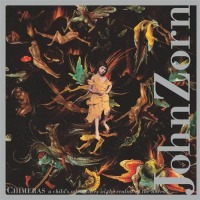
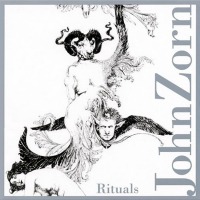




.jpg)




.jpg)

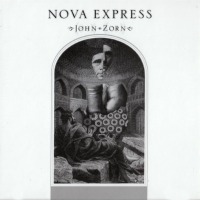



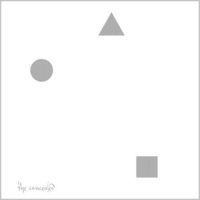



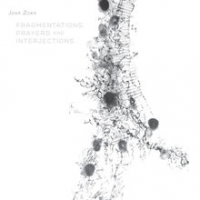
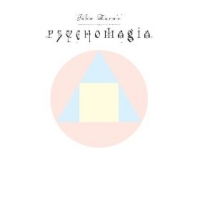


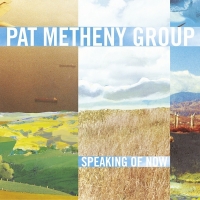
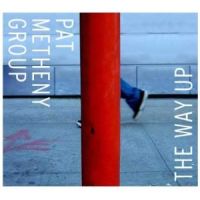
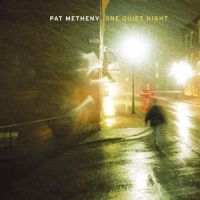
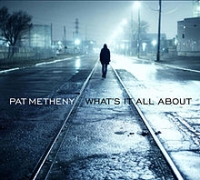





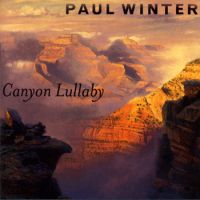
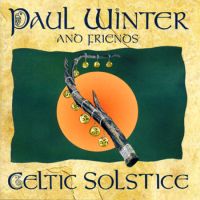












2017 m. spalio 13 d. 16:09:46
Pat Metheny ir Oregon naujienos:
Recorded in december 2014, the 2CD set The Unity Sessions (Nonesuch, 2016) documents the large ensemble Unity Band, created in 2012 by guitarist Pat Metheny, and here on their third album. Metheny arranged his material gathering Ben Williams (basses), Antonio Sanchez (drums), Giulio Carmassi (piano, flugelhorn, whistling, synth, and vocals) and Chris Potter (tenor and soprano saxes, bass clarinet, flute, guitar), integrated by his software orchestrionics, simulating electric and acoustic guitar, guitar synthesizer and electronics.
In 2012, guitarist Pat Metheny won a Grammy for his album Unity Band. That album featured his then newly formed group featuring saxophonist Chris Potter, bassist Ben Williams, and drummer Antonio Sanchez. A year later, the Unity Group returned with Kin , which found Metheny expanding the ensemble to include multi-instrumentalist Giulio Carmassi. Arriving in 2016, The Unity Sessionsshowcases that expanded version of the Unity Group live in a gorgeously produced one-off performance at New York's Black Box Theatre on the heels of their 2014 tour. Hoping to capture the synergy and collective dynamic forged over the yearlong tour, Metheny had the Unity Group set up at the Black Box just as they would for a live show. He then had the concert recorded and filmed, resulting in a unique document that is both studio recording and live performance. Here, we get cuts off both Unity Band and Kin , as well as songs culled from Metheny's lengthy career. These run the gamut from acoustic classical pieces ("Adagia") to moody, groove-oriented modal fusion cuts ("Roofdogs") to atmospheric world music-inflected numbers ("Come and See") and more. Elsewhere, the ensemble summons a palpable warmth on the ruminative ballad "This Belongs to You," combines John Coltrane-esque spirituality and African rhythms on "On Day One," and dives headlong into the expansive flamenco-steeped anthem "Rise Up." They even make room for a sprightly duo version of the jazz standard "Cherokee," featuring lively interplay between Metheny and Potter. Ultimately, while Methenyis the undisputed leader here, it's the thoughtful interplay of all the Unity Group's members that makes these sessions so involving.
Cuong Vu Trio Meets Pat Metheny (Nonesuch, 2016) joins the guitarist with a trio led by trumpeter Cuong Vu, along with Stomu Takeishi on bass and Ted Poor on drums. Recorded in february 2016, it comprises five tunes written by Vu plus one by Metheny and one by Andrew D'Angelo. Extensively presented here by the guitarist.
Despite the somewhat misleading title, Cuong Vu Trio Meets Pat Metheny, trumpeter Cuong Vu has a lengthy history with the legendary jazz guitarist that goes back to Metheny's Grammy-winning 2002 album, Speaking of Now. Since then, Vu has played with Metheny enough that he is a regular part of the conversation when discussing the guitarist's more adventurous contemporary works. Despite his pedigree, having graduated from the New England Conservatory and worked with such luminaries as David Bowie, Myra Melford, Laurie Anderson, and others, Vu is a maverick. A highly gifted, forward-thinking musician, Vu often eschews the more clarion, declarative aspects of his chosen instrument in favor of macabre growls, dampened tones, and improvisatory lines that skitter forth with the mad convulsions of a housefly. Pairing him with the uber-controlled precision of Metheny might seem like an odd choice at first. A paragon of contemporary jazz, Metheny is known more for his warm tone and clean lines than downtown N.Y.C. edginess. However, he is also a mutative artist whose skills bridge wide stylistic plains from languid folk to swinging post-bop and aggressive fusion. It's also easy to forget that Metheny played on the late Ornette Coleman's 1986 release Song X, an album of frenetic yet deceptively restrained free jazz that works as a useful touchstone for what Vu and Metheny have created here. Joining the trumpeter and guitarist are Vu's bandmates bassist Stomu Takeishi and drummer Ted Poor. Together, the quartet plays a set of original songs that straddle the line between ambient tone poems, exploratory modal jazz, and punk-inflected noise jams. The opening "Acid Kiss" brings to mind a '70s sci-fi film, with Vu's mournful trumpet setting the tone as the trio straggles in behind him, each note illuminating the dark alien landscape. In warm contrast, "Seeds of Doubt" finds Vu and Metheny playing in tandem, their crisp, pointillist melody soon giving way to a delicately soaring solo from Metheny. Splitting the difference, cuts like "Tune Blues" and "Not Crazy (Just Giddy Upping)" showcase the group's knack for pushing swinging post-bop in explosive, ear-popping directions. Anchored by Takeishi's thick doom bass and Poor's hyper-kinetic drumming, Metheny and Vu wrangle hold of the harmolodic blues of "Not Crazy (Just Giddy Upping)," body slamming each line until the whole sound is less jazz band and more like Ornette Coleman fronting Iron Maiden.
Lantern (spring 2017), the first Oregon album in five years, features Paul McCandless (oboe, English horn, soprano saxo, bass clarinet), Mark Walker (drums, synthesizer) and Paolino Dalla Porta (double bass).
(Zorno naujienas papildžiau prie John Zorn biografijos)
____________________
'Aš tau atleidžiu' gali pasakyti tik tas, kas gali pasakyti 'Aš tave myliu' (Paolo Coelho - Alchemikas)
2015 m. spalio 13 d. 17:16:43
Kas per mišrainė...
____________________
„Nieko nepadarysi“ - Kurtas Vonegutas